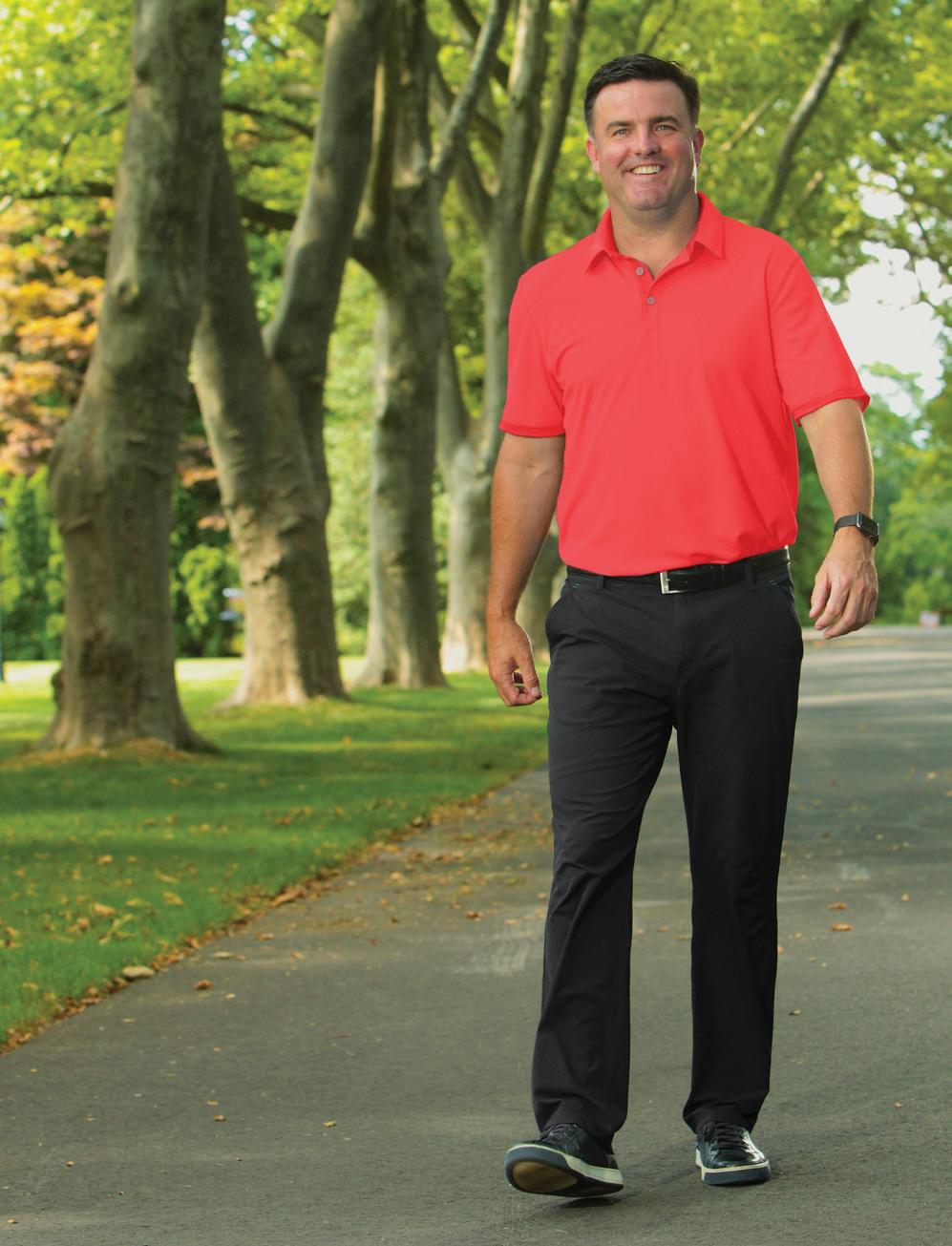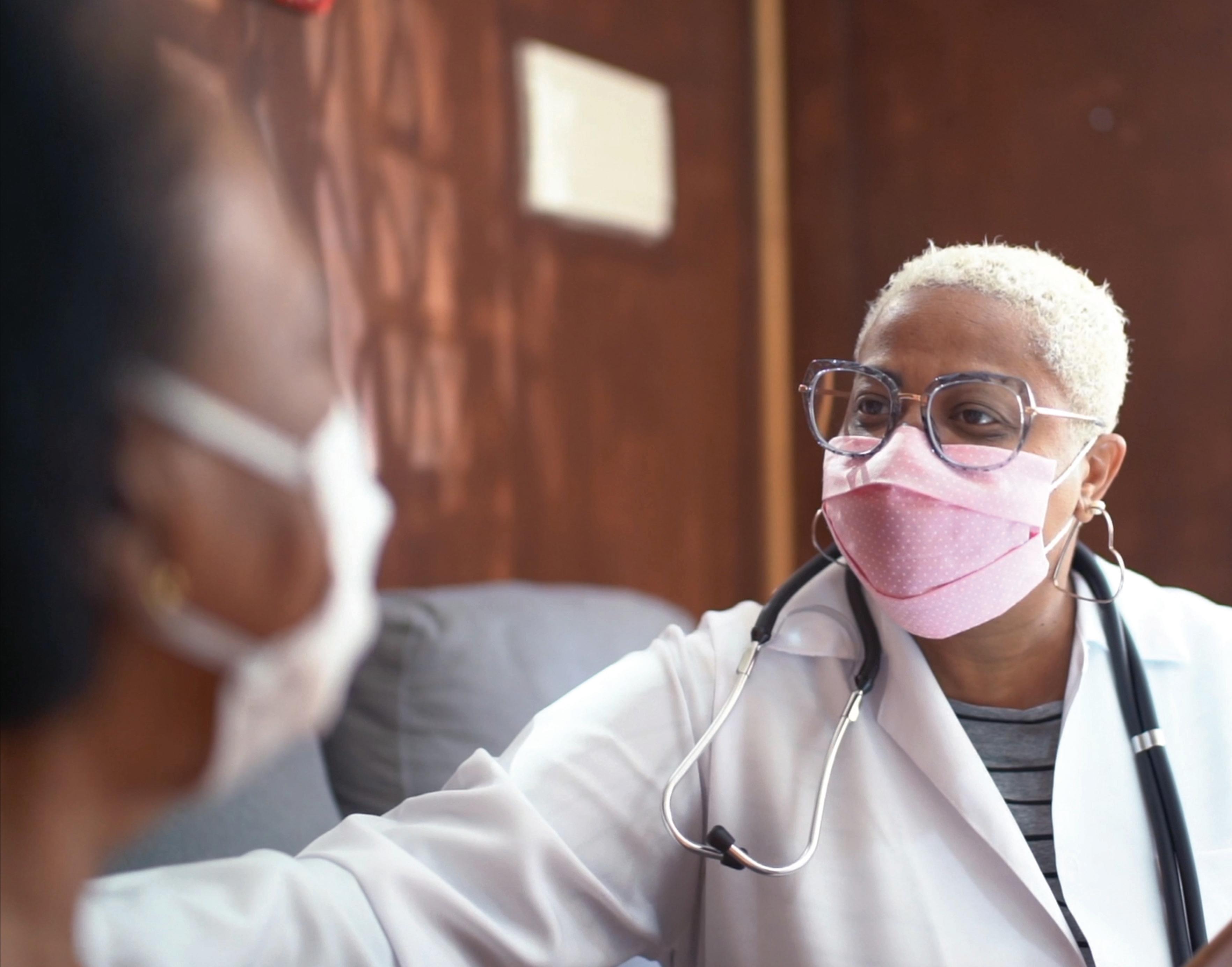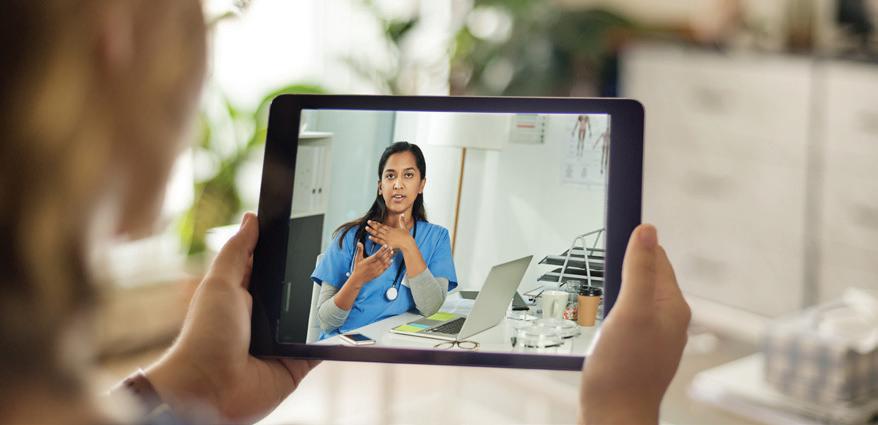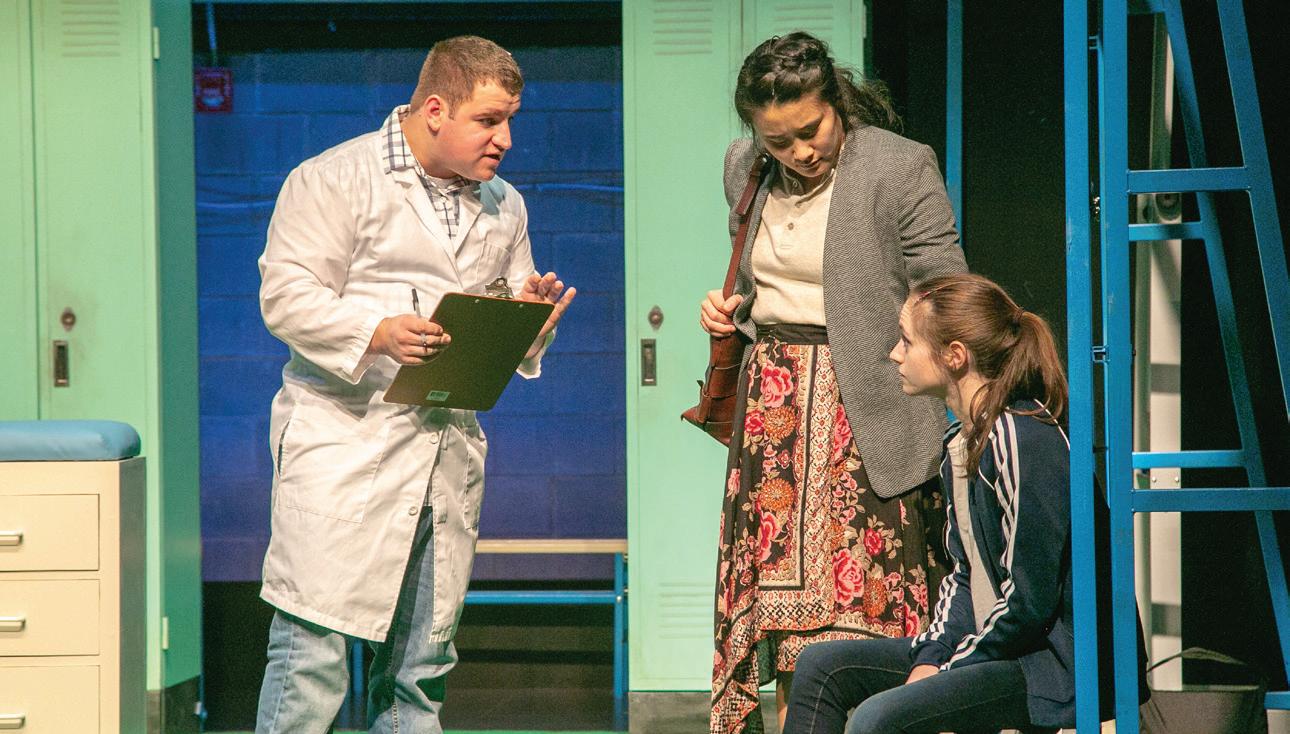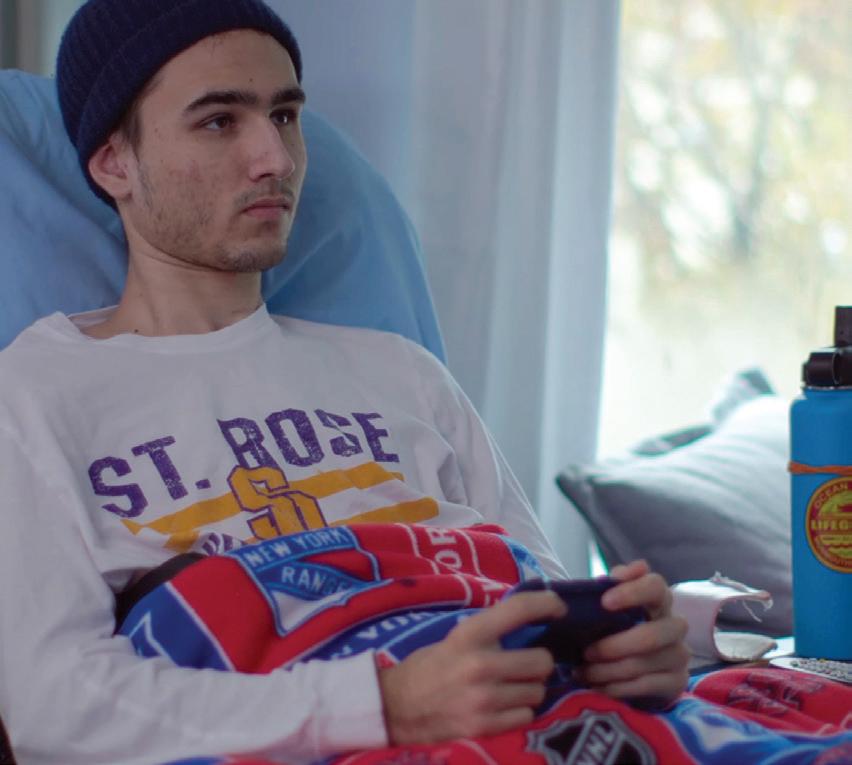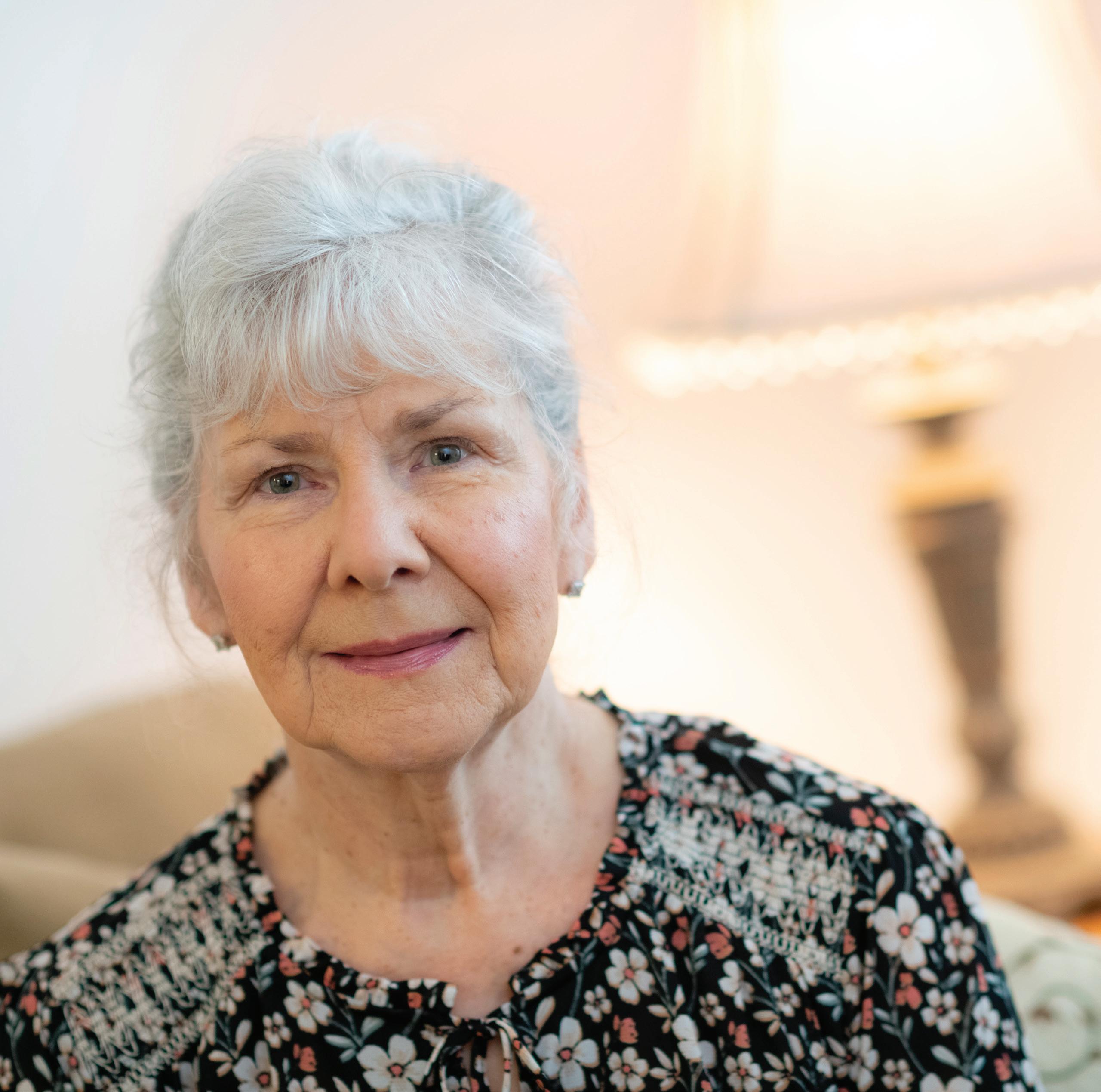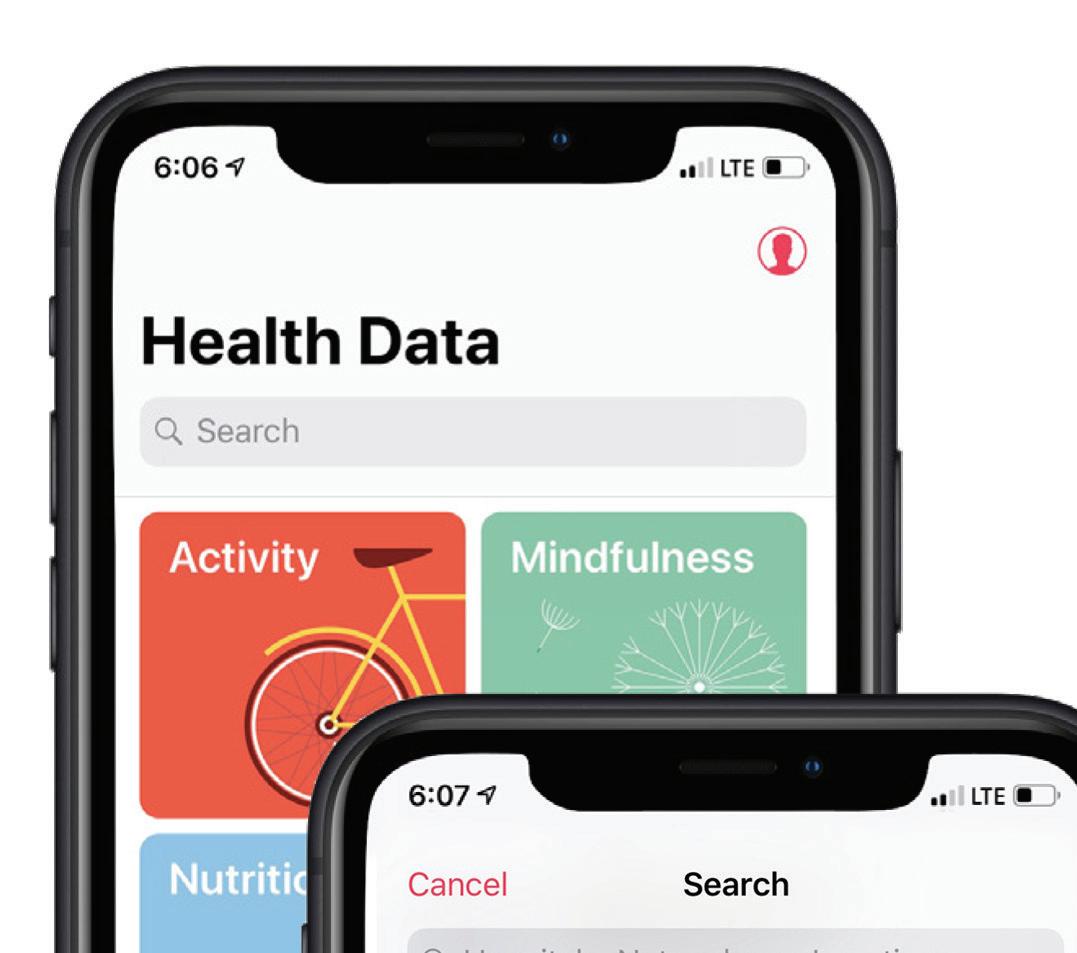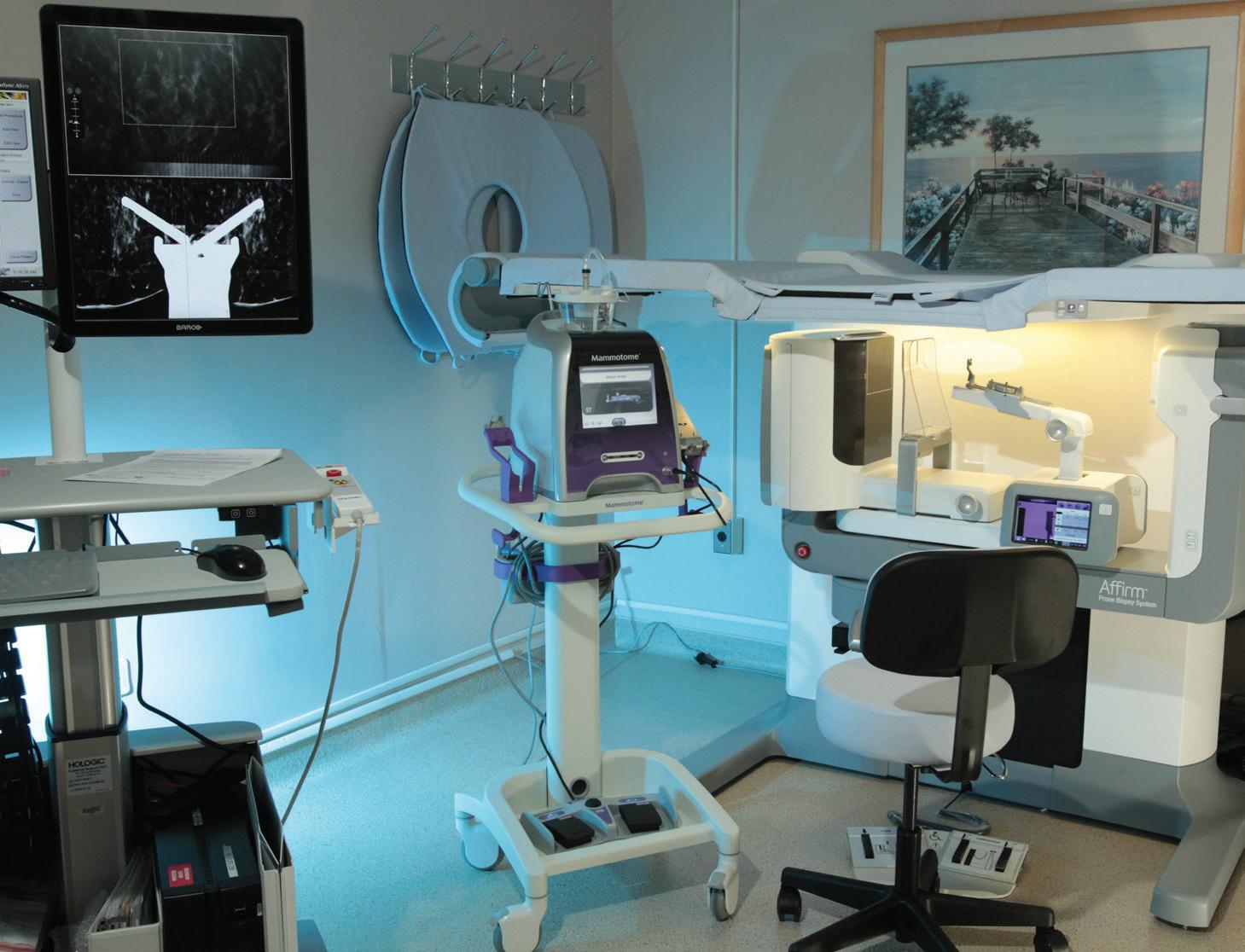DIAGNOSING HEARING PROBLEMS IN BABIES In New Jersey, newborn hearing screening is mandatory. When a baby fails the test, Sue Ellen Boyer, AuD, an audiologist, evaluates the child within the first 30 days of his or her life. She performs the following two-stage test: • Auditory brainstem response (ABR): This test, which is considered the gold standard, measures the electrical activity of the acoustic nerve, which transmits information from the inner ear to the brain. • Otoacoustic emissions (OAE): This test measures hearing from the inner ear. Five different tones are sent to the inner ear, one at a time. A normal response is recorded in the form of an echo.
CUTTING-EDGE TESTING At Monmouth Medical Center Southern Campus, several tests are used to evaluate dizziness. They include: • Posturography: This sophisticated test enables an audiologist to check the components of a person’s balance system. The patient is harnessed into what looks like a phone booth and stands on a footplate, which is equipped with sensors. The device assesses how a person’s muscles and brain react to changes underfoot and in the environment. It also evaluates a person’s inner ear and determines how well he or she compensates for changes in vision. • Videonystagmography (VNG): This test, which resembles video goggles, is used to help diagnose inner ear disorders, such as infections and benign paroxysmal positional vertigo. A person’s eye movements are recorded to determine how well he or she is able to track movements. Head and body movements are also evaluated. • Caloric stimulation: This test is used to assess the vestibular system. Air is placed in the ear canal to stimulate the vestibular system, which transmits information from the inner ear to the brain. The responses of each ear are compared to determine which one is responsible for the dizziness.
Sue Ellen Boyer, AuD, an audiologist at MMCSC, performs an audiological assessment.
STOP THE
SPINNING
AN AUDIOLOGIST COLLABORATES WITH HEALTHCARE PROFESSIONALS TO PROVIDE THE BEST CARE FOR BALANCE AND HEARING DISORDERS.
A
ging might make us wiser, but it also increases the risk of developing troublesome conditions, such as dizziness and vertigo (a spinning or whirling sensation). About 35 percent of adults ages 40 and older experience some type of balance problem, according to the American Speech-Language-Hearing Association. At Monmouth Medical Center Southern Campus (MMCSC), an experienced audiologist collaborates with physical therapists, geriatricians, an otolaryngologist (ear, nose and throat physician) and local pediatricians to treat a variety of conditions in adults and children. They include dizziness, vertigo, tinnitus (ringing in the ears), chronic ear infections and sudden-onset hearing loss.
A TEAM APPROACH Dizziness and vertigo are marked by symptoms such as lightheadedness, involuntary eye movements and changes in vision. These symptoms can be traced to problems in the inner ear, which controls balance. If the brain receives conflicting messages from the inner ear and eyes, for instance, dizziness may result. There are many possible causes of vestibular problems, including infections of the inner ear, medications, head injuries, stroke and vascular disease. At MMCSC, the Physical Therapy Department is located next to Audiology Services. Therapists treat vestibular conditions such as benign paroxysmal positional vertigo, which occurs when calcium crystals in the inner ear break free. It’s responsible for about half of all cases of dizziness in older people, making it the most common vestibular disorder. “Our physical therapists can perform a maneuver to move the crystals back into place and restore a person’s balance,” says Sue Ellen Boyer, AuD, an audiologist at MMCSC. Physical therapists can also teach patients visual and head exercises to strengthen their vestibular system. This team approach to care benefits patients tremendously. Says Dr. Boyer: “We work closely to provide the most efficient and comprehensive care.”
For more information on Audiology Services at Monmouth Medical Center Southern Campus, call 732.942.5921 or visit www.rwjbh.org/monmouthsouth.
Monmouth Medical Center Southern Campus
MMCSC_Audiology_Sum20_REV1.indd 23
|
RWJBH.ORG/MONMOUTHSOUTH
| 23
7/30/20 12:25 PM


